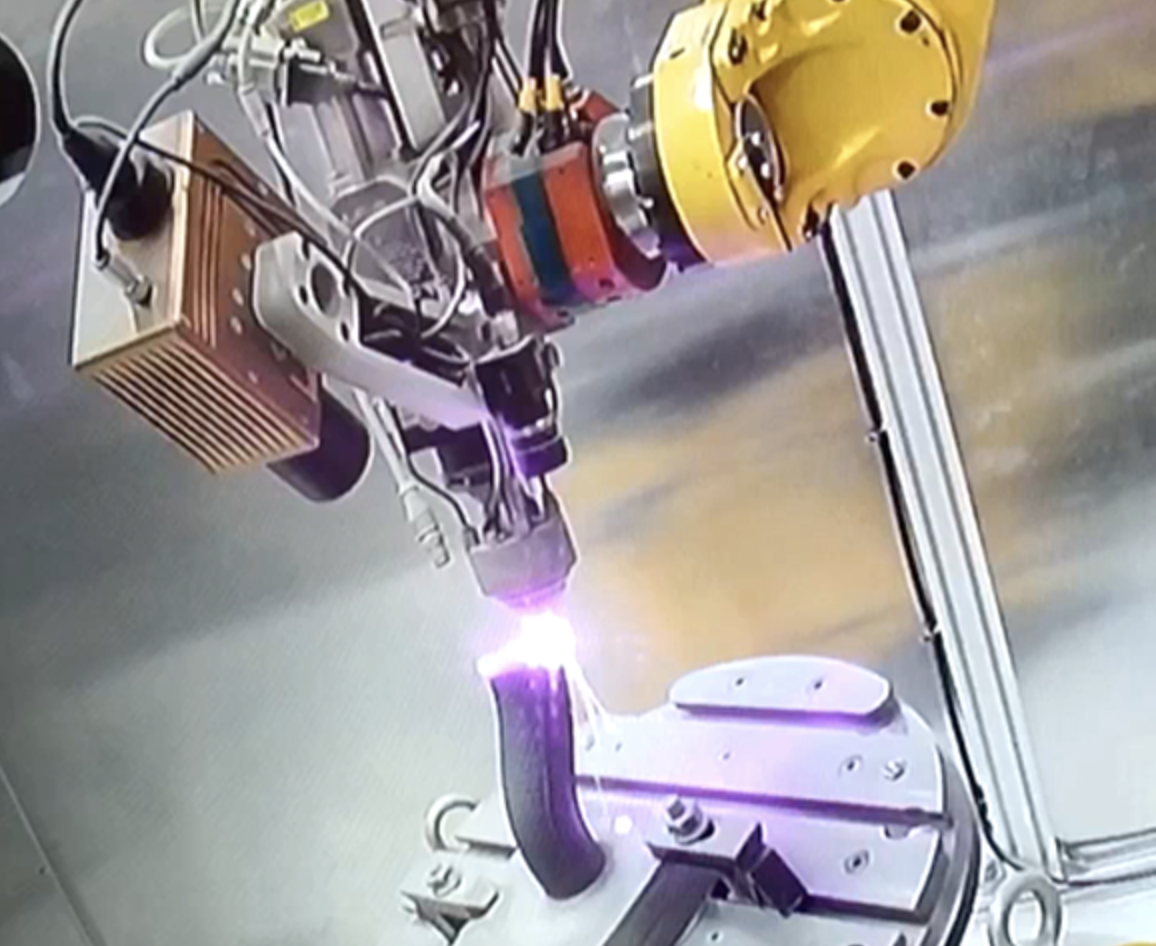A collaborative team from Promation, a leading integrator and manufacturer of tooling, automation and robotic solutions based in Oakville, Ontario, Canada, and CAD/CAM software developer ModuleWorks, headquartered in Aachen, Germany, along with scientists from the Multi-Scale Additive Manufacturing (MSAM) Laboratory of Canada’s University of Waterloo, have developed a new method for additively manufacturing overhang geometries without the need of support structures. By eliminating support structures, the team were able to simplify process planning and reduce waste material.
Parts with geometric overhangs, such as pipes with bends, pose a special challenge for Additive Manufacturing processes that deposit material in horizontal layers. To deposit material in the overhang area of the bend, the process needs to incorporate support structures that allow the layers to extend beyond the pipe. This works well enough, but incorporating support structures adds time and effort to production planning and creates extra waste material.

Tests have been conducted at the University of Waterloo using laser-based Directed Energy Deposition (DED). To simplify and speed up the DED process, Promation, ModuleWorks, and MSAM teamed up to develop a new method that deposits the layers in non-horizontal planes. The printing nozzle is mounted on a 6-axis robotic arm to ensure it always remains tangent to the deposition surface, which is automatically tilted using a 2-axis positioner.
Applying deposition layers to a tilted surface enables pipe bends and other overhang geometries to be printed without support structures, which simplifies production planning and reduces waste material.
In the laboratory tests, the team used the new method to manufacture a pipe with a 45 degree bend with no support structures. The new method was also used to successfully additively manufacture a closed hollow dome.
https://msam.uwaterloo.ca
www.promation.com
www.moduleworks.com
